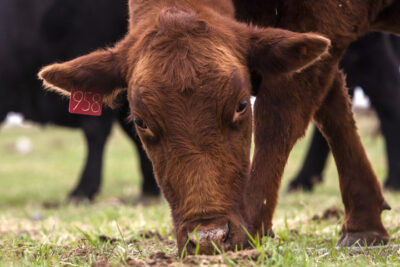Summer heat having major impact for cattle producers
By Tim Kalinowski on July 17, 2021.
 Herald file photo -
Cattle are seen grazing in a field east of the city in this file photo from 2020. This summer's record-breaking heat is having a major impact for Alberta cattle producers.
Herald file photo -
Cattle are seen grazing in a field east of the city in this file photo from 2020. This summer's record-breaking heat is having a major impact for Alberta cattle producers.LETHBRIDGE HERALDtkalinowski@lethbridgeherald.com
The province’s cattle producers are under increasing strain as this summer’s record-breaking heatwave continues, and are calling on the province and federal government to act in concert to activate Agri-Recovery program relief to help with the dire situation.
“It is having a huge impact with the pasturelands,” says Alberta Beef Producers vice-chair Jason Hale, who also ranches near Bassano. “There is not much grass growth. A lot of guys I am talking to are using mainly now last year’s growth. The carry-over (hay) from last year is kind of holding everybody, somewhat, through right now because there hasn’t been much new growth.
“Feed shortage is going to be a huge issue,” he acknowledges.
And, Hale says, a lot of cattle producers are running out of water as well as feed.
“We’re hearing of dugouts that are running low or drying up,” he reports. “So there is a shortage of water in some pastures.”
Since the heatwave began, and pastures have been burning up, Hale says feed prices have skyrocketed.
“I have heard guys talking anywhere from $200 a tonne, $300, $400 a tonne,” he says. “It comes a point where you have to ask how much are you willing to lose to keep your cow herd?”
And for some guys, Hale admits, that calculation has already been made.
“We can feed them for most of the summer, we hope,” he says. “But I have talked to people already that are saying they are going to have to get rid of a bunch of their cows. I have heard lots of the yearlings are going to town earlier than normal that people have out on grass. It is province-wide too. It’s all over the province.”
And not only are the feed costs concerning, says Hale, but he worries the price of beef may also drop quickly once guys start unloading the cattle they no longer can feed; thereby creating a potential oversupply in the marketplace.
“It’s troubling,” he says. “We are not sure where the market is going to end up with prices.”
The Alberta Beef Producers has been working closely with the province to advocate for some kind of drought relief, says Hale.
“We need the Agri-Recovery program to be triggered to help with the feed costs, drought and everything like that,” states Hale. “I am optimistic there will be relief. To what extent? What kind of relief? We don’t know yet what is coming, but all indications are the program will be triggered.”
The Alberta Beef Producers is also speaking with the Agriculture Financial Services Corporation (AFSC) to try to get them to expedite crop insurance write-offs this summer so farmers can turn over their burned crops for feed.
“The best case scenario would be to get a bunch of rain,” admits Hale. “That would be great. But we have been working with AFSC to allow crop producers to utilize their crops for some sort of feed, whether it be grazing or baled feed, for some of the crops that aren’t going to make their production. That would help with the feed shortage. And again, depending on the crop and the stage of the crop, we need to come to solutions fairly quickly while there is still a lot of feed value left in the crop.”
Hale says Alberta Agriculture Minister Devin Dreeshan and all rural MLAs in agricultural areas ABP has spoken with are “fully aware of the dire need of the circumstances we are in.” He expects action to be taken relatively soon.
“We can’t control Mother Nature, but hopefully we have some influence with the government,” he says.
Follow @TimKalHerald on Twitter
4-3




